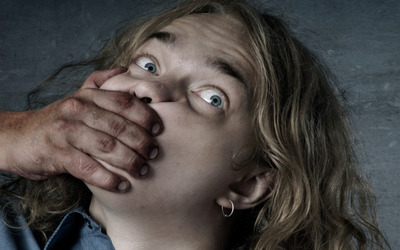We have a tendency to act in the extreme when there is any suggestion of an adult having sex with or performing sexual acts upon a child. It is something that is undoubtedly abhorrent to us, and rightly so – the grotesque acts of an adult taking advantage of a child are some of the most predatory and worrying things that we can imagine. Sexual abuse against children is very wrong by our modern standards, but it seems that this was something that was far more lax in the past.
Indeed, when you think about all of the cases of sexual abuse by children’s TV presenters and radio DJs from the 1960s apparently or allegedly attacking children sexually and using their influence to force sex upon them, one thing that is apparent is that obviously the culture was different. In today’s society, if someone saw somebody abusing a child they would be appalled and feel compelled to act, while it seems that in the past this was considered not really to be so much of a problem. It’s true that these sexual predators were able to get away with their crimes mainly because of the inaction of others.
In an interview with TIME magazine, the celebrated biologist Richard Dawkins was able to speak candidly about the fact that he was molested when he was a child. But interestingly, rather than condemning it as an evil act of which the perpetrator should be severely punished, Dawkins was actually more able to be forgiving and lenient. In fact, what he effectively suggested was that we should not judge the molesters of the past by the standards of today, because clearly attitudes have changed towards the subject and people were not considered to be monsters back in the day, and clearly they are now.
In his descriptions of his attack, Dawkins describes the act as being unpleasant and embarrassing, but stops short of claiming that it had made a huge impression on him or done anything to ruin his life. Indeed, perhaps it was because his attack was a relatively minor affair compared to some sexual abuses stories (although we must be careful not to take any sexual abuse lightly) nevertheless, Dawkins does not seem to feel too much ill will towards his abuser, who was his master at school, and was revealed to have abused many of the children.
However, this feels like a very soft way to deal with someone who is effectively a paedophile. It is perhaps a little worrying that Dawkins is suggesting that such forgiveness should be granted simply based on the time that the attack took place. Indeed, it is clear that survivors of sexual abuse take many different views of what should be done to deal with people who are doing such things. Some take a very relaxed approach, like Dawkins, while others who perhaps suffered more greatly will rightly feel a true sense of injustice when we think about how much of a breach of trust that happens when an adult assaults a child.
Of course it was never OK to have sex with or perform sexual acts upon children. Children, by their very nature, can’t ever be seen to have the true understanding of reality to be able to make a decision on their own. Some, like Dawkins, will be able to forgive their attackers, while others may well be more traumatised by the event and feel the need to see a degree of justice against them. This is a tricky moral area, and one that must be approached sensitively.
